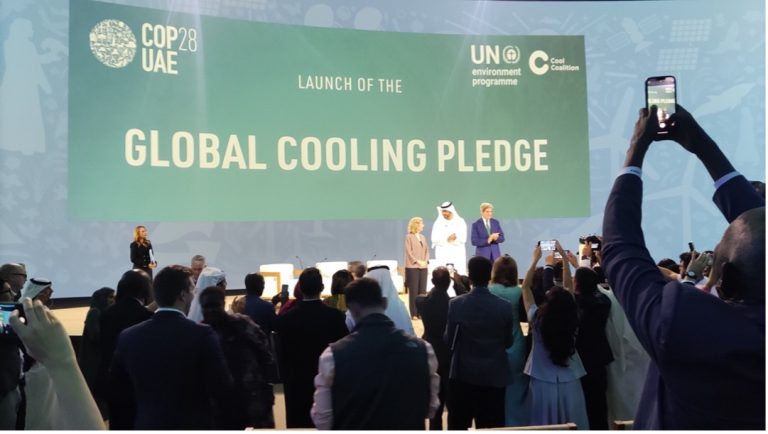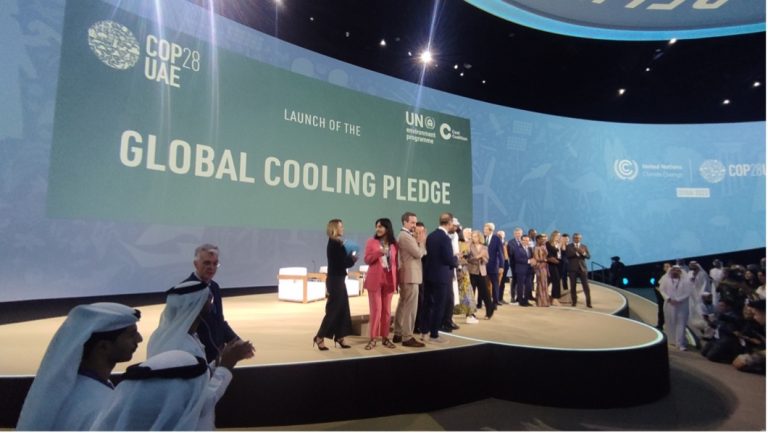The Race for Sustainable Cooling is Heating Up
2023年12月06日
绿色创新发展研究院iGDP
Yesterday saw the launch of the Global Cooling Pledge, a collaborative effort between the United Arab Emirates, host of COP28, and the UNEP-led Cool Coalition. The aim of the Pledge is to enhance the affordability of air conditioners, deep freezers, and heat-dissipating homes, with special emphasis on developing nations, while curbing the emission of heat-trapping gases from the rapidly growing cooling sector.
At the time of the writing of this article, 63 countries have joined the Pledge. At yesterday’s formal launch of the Pledge in Dubai, it was evident that there is an ongoing effort by Pledge organizers and signatories to have more countries step up and sign up.
In his introductory remarks US Special Presidential Envoy for Climate John Kerry, while praising the goals of the Pledge and noting their connection to the Montreal Protocol and its Kigali Amendment, expressed anxious hope that COP28 President Dr. Sultan al-Jaber would attend the launch event.

US Special Presidential Envoy for Climate John Kerry ©️ Diego Montero
It was only after the first panel session following Special Envoy Kerry’s speech that the COP28 President made an appearance, albeit a brief one and only for a group photo, eschewing remarks.

From left to right: Inger Andersen, Executive Director of UNEP, COP28 President Dr. Sultan al-Jaber, and US Special Presidential Envoy for Climate John Kerry ©️ Diego Montero
The Global Cooling Pledge is one of nine non-negotiated declarations, charters, and pledges that are considered key outcomes on COP28’s Presidential Action Agenda. Recognizing the importance of action at every level, it invites national and subnational governments to join as participants, with a small number of cities designated as City Champions of the Subnational Commitments to the Pledge, and the private sector, development banks, financial institutions and philanthropic organizations to serve as supporters.

The Global Cooling Pledge highlights the complicated balancing act between economic development and climate safety. The international community, driven by the UN Sustainable Development Goals, is committed to ensuring access to cooling throughout the world. But this will have to be accomplished in a sustainable manner to avoid exacerbating the climate challenge.
Inger Andersen, Executive Director of UNEP, said that, “The cooling sector must grow to protect everyone from rising temperatures, maintain food quality and safety, keep vaccines stable and economies productive. But this growth must not come at the cost of the energy transition and more intense climate impacts.”
This tension can sometimes erupt into acrimony, as when COP28 President warned that a commitment to phasing out fossil fuels would “…take the world back into caves.” This acid remark from Dr. Sultan al-Jaber, though lacking in diplomatic finesse, points to the current lack of an economic development model that circumvents fossil fuels. Sustainable cooling is a microcosm of this larger challenge.
Diego Montero,iGDP 战略总监。负责机构研究、传播和战略规划。
